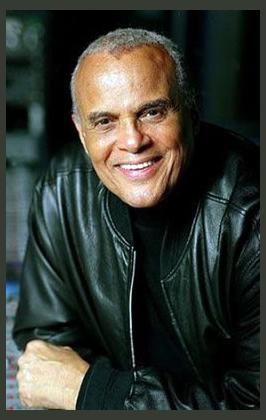 Harry Belafonte
Harry Belafonte
Harry Belafonte: The Legendary Voice of Calypso
Harry Belafonte, a renowned singer, actor, and activist, left an indelible mark on the music industry with his captivating rendition of "Banana Boat Song (Day-O)." Born in Harlem, New York, in 1927, Belafonte's journey to stardom was paved with challenges and controversies.
Musical Career:
Belafonte's musical career began with his exploration of folk music in the 1940s. His breakthrough came in 1956 when he released the album "Calypso," which introduced the world to the vibrant sounds of the Caribbean. The album's lead single, "Banana Boat Song (Day-O)," became an instant hit, propelling Belafonte to international recognition.
Challenges and Controversies:
Belafonte's success was not without its obstacles. Accused of commercializing calypso music, he drew criticism from some purists. Additionally, his outspoken activism for civil rights and against racial injustice often led to controversies and threats against his safety.
Discography:
Throughout his prolific career, Belafonte released over 30 albums. Some of his most notable works include:
* Calypso (1956)
* The Midnight Special (1962)
* Jump Up Calypso (1965)
* Belafonte at Carnegie Hall (1960)
* An Evening with Belafonte/Makeba (1966)
Members:
Belafonte performed as a solo artist throughout his career, but collaborated with numerous musicians and vocalists on various projects.
Legacy:
Harry Belafonte's legacy extends beyond his music. He became a symbol of the Civil Rights Movement and an advocate for social justice. His passion for equality and unity continues to inspire and empower generations. Belafonte's influence on popular music is undeniable, as he introduced calypso to a global audience and paved the way for other Caribbean artists to gain recognition.
Harry Belafonte, a renowned singer, actor, and activist, left an indelible mark on the music industry with his captivating rendition of "Banana Boat Song (Day-O)." Born in Harlem, New York, in 1927, Belafonte's journey to stardom was paved with challenges and controversies.
Musical Career:
Belafonte's musical career began with his exploration of folk music in the 1940s. His breakthrough came in 1956 when he released the album "Calypso," which introduced the world to the vibrant sounds of the Caribbean. The album's lead single, "Banana Boat Song (Day-O)," became an instant hit, propelling Belafonte to international recognition.
Challenges and Controversies:
Belafonte's success was not without its obstacles. Accused of commercializing calypso music, he drew criticism from some purists. Additionally, his outspoken activism for civil rights and against racial injustice often led to controversies and threats against his safety.
Discography:
Throughout his prolific career, Belafonte released over 30 albums. Some of his most notable works include:
* Calypso (1956)
* The Midnight Special (1962)
* Jump Up Calypso (1965)
* Belafonte at Carnegie Hall (1960)
* An Evening with Belafonte/Makeba (1966)
Members:
Belafonte performed as a solo artist throughout his career, but collaborated with numerous musicians and vocalists on various projects.
Legacy:
Harry Belafonte's legacy extends beyond his music. He became a symbol of the Civil Rights Movement and an advocate for social justice. His passion for equality and unity continues to inspire and empower generations. Belafonte's influence on popular music is undeniable, as he introduced calypso to a global audience and paved the way for other Caribbean artists to gain recognition.